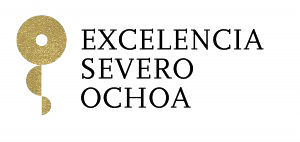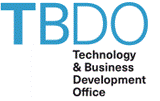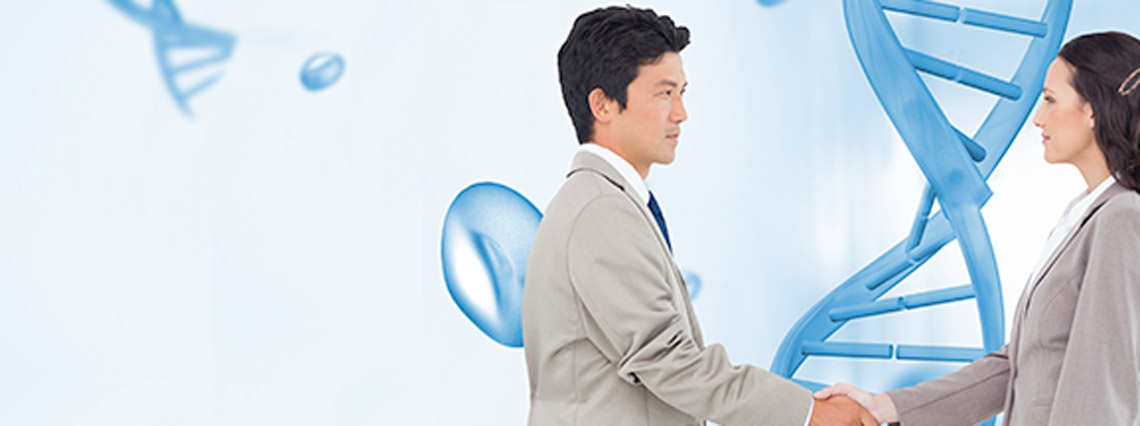BioBusiness School
Based on the great success of the first edition, the 2nd CRG Bio-Business School shall:
- Raise awareness about technology transfer among the participants through lectures and hands-on practical sessions;
- Teach the challenges, opportunities and tools to successfully transfer basic knowledge "from the lab to the market";
- Identify projects with technology transfer/business potential that could otherwise remain undisclosed;
- Match basic science in biomedicine, bioinformatics, etc. with business;
- Have participants function as "signal amplifiers", able to spread the knowledge acquired amongst other colleagues, and apply it to new projects;
- Stimulate a culture of innovation and entrepreneurship.
Biotech Entrepreneur, Iproteos, Institute for Research in Biomedicine (IRB), Barcelona, Spain.
Teresa Tarragó is CEO & Founder of Iproteos since 2011 and research associate at IRB Barcelona since 2006. Teresa has a broad experience in drug discovery through her work for more than fifteen years conducting several research lines on proteases and protease inhibitors as a Researcher at the Spanish National Research Council (CSIC) and the Institute for Research in Biomedicine of Barcelona (IRB Barcelona, Spain). She has been involved in project management of internationally funded research projects as well as in direction of join projects with biotech companies. Besides her scientific formation, she holds an Executive MBA from one of the top business schools, ESADE Business School. With a marked entrepreneurial profile she has participated in many Entrepreneurship programs such Ignite at Judge Business School (Cambrigde) and Bioemprendedor XXI.
IP manager, Flanders Institute for Biotechnology (VIB), Gent, Belgium.
Carla Snoeck works as IP manager in the Technology Transfer department of VIB, since 2008, . She's been actively involved in scouting for novel inventions amongst the different research departments, and co-responsible for filing and prosecution of patent applications. She's also providing support for all IP-related aspects of VIB's business development activities and particularly for its future start-ups. Before that, Carla worked for almost 3 years in the patent department of Innogenetics (now Fujirebio), an international in vitro diagnostics company.
Carla holds a master in bioscience engineering and industrial engineering and obtained her PhD in applied biological sciences at the Catholic University Leuven.
Socio/Partner, ID Law Partners & Free Software Foundation Europe (FSF), Barcelona, Spain.
Malcolm Bain is founding partner of id law partners, boutique law firm in Barcelona specializing in IT law. Malcolm specializes in information technology and intellectual property law. He has a wide experience representing clients on both sides of IT transactions, including several public administrations both as users of technology and for technology transfer. Malcolm's special focus is on the legal issues of open source software and content, including both developing and freeing software, establishing licensing strategies and IPR enforcement. Malcolm is member of the Free Software Foundation Europe, and Free Software Chair of the Universitat Politécnica de Catalunya, and lectures on the legal aspects of ICTs at Masters level, as well as participating in many conferences on these subjects.
European Patent Attorney, Flanders Institute for Biotechnology (VIB), Gent, Belgium.
Jan Demolder obtained his PhD in molecular biotechnology at the University of Gent. After his PhD he enjoyed an EMBO long time fellowship at the University of Seville and later also an EMBO short time fellowship at VTT, Espo (Finland). Then he started in the technology transfer department of the Flanders Institute for biotechnology (VIB) in Belgium as an IP manager. After qualifying as a European Patent Attorney in 2007 he decided to work in the IP team of Bayer CropScience for almost three years. After this experience he decided to return to VIB where is now involved in invention harvesting, business development and in all aspects of the protection of intellectual property assets in the institute. Jan is also a part time professor at the University of Gent.
Senior Manager, New Ventures, Flanders Institute for Biotechnology (VIB), Gent, Belgium.
Els Beirnaert is responsible for the establishment of start-up companies in life sciences. In this role she is engaged in business analysis and market research, identifying product opportunities, attracting venture capital funding, corporate structuring and negotiations. Previously she was one of the start-up pioneers of Ablynx, a company established in 2001 focused on the development of biological therapeutics, where she was leading multidisciplinary project teams and translating several drug development projects from discovery over pre-clinical development to clinical development. Dr. Beirnaert obtained a Master in Biotechnology at the University of Ghent and a PhD in Biochemistry at the University of Antwerp.
Chief Scientific Officer, Harvard Univeristy, Blavatnik Biomedical Accelerator (Cambridge Office), United States of America.
Curtis Keith joined OTD in 2008. Prior to joining Harvard, Curtis worked at CombinatoRx, Inc., a pioneering company in the emerging field of synergistic combination pharmaceuticals, where he served as co-founder and Senior Vice President, Research. At CombinatoRx, Curtis directed research programs in multiple therapeutic areas, including rheumatoid arthritis, psoriasis, osteoarthritis, oncology, metabolic, neurodegenerative and infectious disease, and helped the company to advance a pipeline of several clinical and preclinical drug candidates. Curtis holds an MA in chemistry and a PhD in chemistry and chemical biology from Harvard University.
Jose Antonio Mesa joined Caixa Capital Risc VC in 2006 where he is working on new innovative start-up companies within the life science field. He is responsible for evaluation, negotiation and investments in biotechnology, healthcare and medical devices and currently manages a portfolio of 2 companies and serves in the Board of Directors of companies like STAT-Diagnostica, Laboratorios Sanifit, Medlumics or nLife Therapeutics. Caixa Capital Risc VC is focused on financing Seed and Start-up companies in the internet, IT and life sciences sectors.
Prior to his work for "la Caixa", Jose Antonio worked for Genoma España as a Technology and Business Analyst having direct contact with new biotechnologies and spin-offs generated in the Universities and Research Centres. He also worked as business development analyst for Genzyme in Madrid.
Jose Antonio holds a master's degree in Biology, specializing in Genetics from the Universidad Complutense in Madrid, a Master in Corporate Finance from Universidad Complutense, an MBA and a PDD from IESE Business School.
CEO, Spherium Biomed SL, Barcelona.
Molecular Biologist PhD, after 10 years of academic research in Spain and US shifted to the pharmaceutical industry in 1997 to play various managerial roles in project management and business development in the leading spanish company Almirall. In 2001 left Almirall to participate in the creation of the first biotech company spun-off from the University of Barcelona, Advancell, and became its first CEO. Left Advancell in December 2008 to create his current company Janus Developments (now Spherium Biomed, a joint venture with Grupo Ferrer), a hands-on incubator for biomedical projects of academic origin. He has served as interim first executive in ERAbiotech, TCDPharma and Archivel Farma, and serves as Director of the Board in several biotech companies in Spain. He is one of the founders of the Catalan Association of Biotech companyies (CataloniaBio). Besides his role as CEO in Spherium, he is currently Executive President in the veterinary company Aquilón Cyl SL, spin-off from Universidad de León, recently recognized by the "Cinco Dias" award to the best innovative project linked to the university in Spain.
The school will be composed of several modules combining lectures and workshops, motivating the participants through hands-on and real-life examples. Each lecture will provide an introduction to a key aspect of technology transfer and the most relevant tools in relation to it, while the workshops will focus on stimulating the entrepreneurship competences and skills of participants to apply the newly acquired knowledge to their own projects or ideas, in order to make them into products. The business concept will be identified on the first module/day, and consequently developed in teams during the 5-days course, towards an initial marketable project.
- Introduction to Technology Transfer and Overview Bio-Business School
- Idea and potential identification and evaluation
- Workshop on identifying potentials in own research activities
Chair: Pablo Cironi
Keynote Lecture: Teresa Tarragó
Lecturers: Carla Snoeck & Jan Demolder
A flavor of what can be expected in the course will be given by a successful biotech entrepreneur (Teresa Tarragó) through a talk on her business story and experience, dos and don'ts and the outcome of it all… After this, the course will commence, and experts will provide an overview on academic technology transfer, with a focus on how to identify an invention, the invention disclosure, and how to assess its technological and commercial potential.
Researchers focus on their ongoing research and potential new research ideas in a quest to understand through science, build their curriculum, and publish their results in scientific journals. However, they rarely screen their work for valuable opportunities and transfer their research results towards the market. As a result, potential inventions remain unnoticed, and are left unexploited. In this module, experts will provide an overview on how to identify an invention and assess its potential, introducing the concepts of invention disclosure and technology assessment.
In addition, biotech and pharma sectors will be presented. The module aims at sensitizing researchers to evaluate the potential of their research results, and provides the participants with tools to decide whether a research result could be an invention.
- Intellectual Property (IP) protection
- Software protection and licensing issues with a focus towards commercialization
- Workshop on "How to use patent databases?" based on project developed on day 1
Lecturers: Carla Snoeck, Jan Demolder & Malcom Bain
Inventions need to be protected, and there are different ways to do so. Especially in life sciences, the most important option is patenting. This second module therefore provides an overview on different types of intellectual property (IP) protection, focusing on patents in the life sciences sector and tools available to search for patents and perform initial white space and freedom-to-operate analyses. To date, researchers rarely use this valuable source of knowledge, which often results in inefficient "double inventions".
In addition, this second module will include a separate section on software. Software use and development is part of the everyday life of a research institute like the CRG. Although software is barely protected through patents, there are ways to protect it and licensing issues that affect it and that can have a strong impact on its eventual commercialization.
- The decision making step
- Workshop on "How to apply the decision making step" using examples developed on day 1+2
- Workshop From theory to practice: negotiating a term sheet + brainstorming on licensing around course cases
Lecturers: Curtis H. Keith, Els Beirnaert
From a public research institution's perspective, the common way to exploit a patent is to transfer it to an external partner that further develops and commercializes it, such as an established company or an own-created spin-off, in exchange of economic return. Experts will impart knowledge on how to strategically select the right option and strategy: does (e.g. a patent) have the potential to become the basis for a spin-off or shall it rather be licensed or sold to an external partners? Afterwards, experts will provide a closer look on their licensing activities and share their experiences in the life science field.
This third module aims at making researchers aware of the different routes an invention can take towards the market, and showing them their potential roles in this process.
- How to start up – Entrepreneurship in Life Sciences
- Workshop on business model generation
- Funding opportunities
Lecturers: Curtis H. Keith, Els Beirnaert
Stemming from the decision-making step, this fourth module introduces the spin-off pathway on how to exploit e.g. a patent. Experts will give a brief introduction to the business model concept and on how to write a business plan. This workshop allows the participants to create a business model for their own invention and to develop a draft of their potential business plan.
In addition, this module will also give an overview of potential funding sources (public and private) that allow for the development and commercialization of an invention. Furthermore, the concept of life science incubators and accelerators will be introduced, as well as different types of entrepreneurial support and consulting mechanisms.
- Overview and summary of important learnings
- Round-table discussion
- Presentation of workshop results – Facing reality
Expert panel: Luis Ruiz, Curtis H. Keith, José Antonio Mesa, Teresa Tarragó
The last day will start with a quick overview of the course and a review of key learnings, followed by a round table discussion between national and international experts from academia, private foundations, industry and venture capital, that will share their models, experiences, and emerging trends in funding of early stage opportunities. In the following session, course participants are given a unique opportunity to present and pitch their proposals to the experts for their feedback and assessment. The best business project proposal will be selected and will be entitled to a prize. Course attendance certificates will also be delivered to participants. The CRG Technology and Business Development Office will follow projects from CRG researchers, in order to consider them for valorisation or other actions.
Organized on the first day, the networking event will give the participants the opportunity to socialize and tighten links amongst the recently established team members, as well as with the course lecturers and organizers. By creating a relaxed and productive working atmosphere, the event aims at promoting the intercultural as well as scientific and business exchange amongst attendants.
The school has been organized by the CRG Technology and Business Development Office and the Training Unit:
- Silvia Tórtola, PhD
Senior manager Technology and Business Development Office - Pablo Cironi, PhD
Head of Technology and Business Development Office - Elias Bechara, PhD
Manager Training Unit
WHO CAN APPLY?
Researchers in life sciences at different career stages (from PhD students, postdocs, junior researchers to PIs) at PRBB, IRB, and EU-Life Institutes are invited to apply. The participation of students from internationally recognized business schools is also actively encouraged in order to favour mixed, multi-disciplinary teams that better help/teach how to bridge the gap between science and business.
FREE REGISTRATION
Attendance to the course is free of charge, and includes lunches, coffee breaks and the technical material relevant for the course. If you have been selected and you are not able to participate to the course, you are invited to notify the organizers as soon as possible, otherwise you might not be able to attend any course organized by the CRG in the future. Registration will open on June the 1st. Please, click here to register.
DEADLINE
Deadline for application is on the 30th of June 2015. Applicants will be notified about the outcome of the selection process and will be asked to confirm their participation by the end of July.
SELECTION
16 full-time participants + 2 full time participants from EU-Life Institutes will be selected among candidates. Candidates will be selected by the organizing committee based on their motivation and a short abstract describing their lab-to-market idea.
The school is taking place in the premises of the Centre for Genomic Regulation, CRG, in Barcelona.
C/ Dr. Aiguader, 88 · 08003 Barcelona, España
Tel. +34 93 316 01 00
The school is sponsored by the CRG and the Severo Ochoa Center of Excellence.





